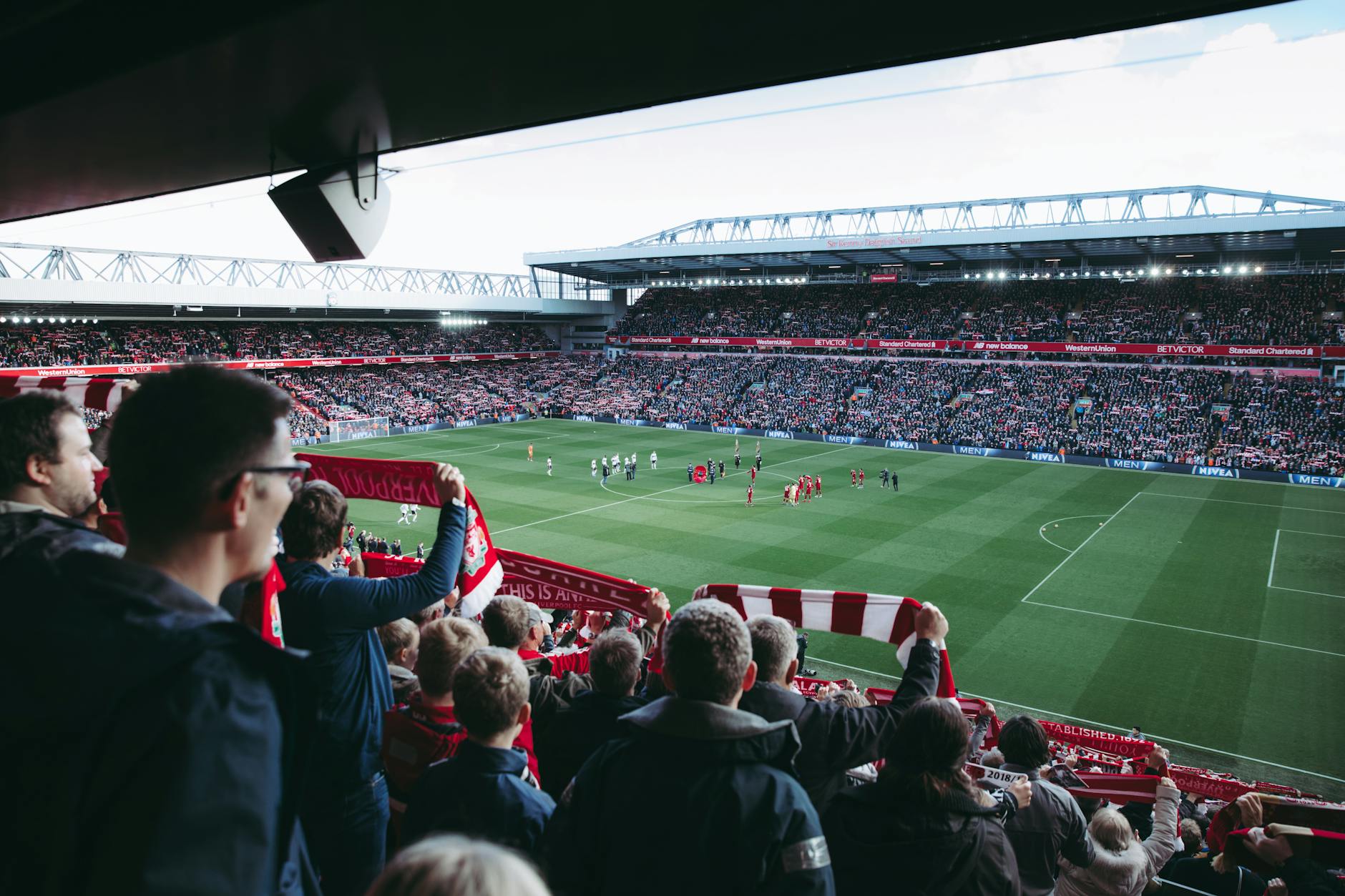Liverpool’s Bid to Trademark Fan Chant Sparks Debate
The club’s move to secure rights to “Allez Allez Allez” highlights complex issues surrounding fan culture and intellectual property.
The renowned football club Liverpool Football Club, already deeply connected with its fanbase through iconic anthems, recently explored securing official trademark status for another popular chant: “Allez Allez Allez.” This initiative, aimed at protecting a phrase that has become synonymous with the club’s identity, has brought to light broader discussions about the intersection of fan culture, intellectual property law, and the commercialization of sporting traditions. The attempt to trademark the chant, which gained prominence during the club’s successful European campaigns, raises questions about ownership, usage rights, and the potential impact on supporter expression.
The Genesis of a Supporter Anthem
The chant “Allez Allez Allez” became a rallying cry for Liverpool supporters, particularly resonating during their memorable runs in European competitions. Its origins are rooted in the terraces, evolving organically as a way for fans to express their passion and unity. The phrase itself is French, translating to “Go, Go, Go,” and has been adapted by various fan groups globally. However, its specific association with Liverpool’s recent successes solidified its place as a modern club anthem.
Navigating the Landscape of Trademark Law
Trademark law is designed to protect brands and prevent confusion in the marketplace. For a sports club, trademarks can encompass logos, team names, and even distinctive phrases that are strongly associated with the brand. Liverpool’s reported attempt to trademark “Allez Allez Allez” falls under this umbrella. The objective, from a club perspective, would likely be to control the commercial use of the phrase, ensuring that any merchandise or media featuring it aligns with the club’s official branding and potentially generating revenue from its use. This is a common practice among major sports organizations seeking to protect their intellectual property.
Fan Culture vs. Commercial Interests: A Delicate Balance
The desire to trademark a fan chant, however, is not without its critics. Many supporters view such chants as communal expressions, born from the collective spirit of the fanbase rather than a creation of the club itself. There is a concern that formalizing ownership through trademarks could lead to the perception of commercializing something that is fundamentally a part of fan identity and shared experience. Critics argue that while clubs have a right to protect their brand, there should be a sensitive approach to elements that are deeply ingrained in supporter culture. The potential for restrictive usage clauses or licensing fees could, for some fans, detract from the organic nature of their vocal support.
Conversely, proponents of such measures highlight the need for clubs to manage their brand effectively in a highly competitive environment. Uncontrolled use of club-associated phrases could dilute brand value or even lead to unauthorized merchandise that reflects poorly on the club. Furthermore, revenue generated from licensing intellectual property can be reinvested into club infrastructure, youth development, or community initiatives, benefiting the wider football ecosystem.
Precedents and Similar Cases
Liverpool is not the first club to explore intellectual property rights related to fan-generated content. Other football clubs have, in the past, attempted to trademark popular songs or chants associated with their support. These instances have often drawn similar reactions, with debates centering on the line between protecting intellectual property and respecting the organic growth of fan culture. Each case presents a unique set of circumstances, influenced by the specific chant, its history, and the prevailing legal and cultural context.
What Lies Ahead for “Allez Allez Allez”?
The ultimate success and implications of Liverpool’s attempt to trademark “Allez Allez Allez” remain to be seen. The legal process for trademark registration can be complex, often involving examination of existing usage and potential conflicts. Regardless of the legal outcome, the discussion itself serves as a valuable reminder of the evolving relationship between sports organizations and their supporters in the digital age. It underscores the importance of open dialogue and consideration for fan sentiment when navigating the commercialization of football culture.
Key Considerations for Fans and Clubs
- Fan Ownership: Many fans feel that chants and songs born on the terraces are communal property, not subject to club ownership.
- Brand Protection: Clubs aim to control the commercial use of distinctive phrases to maintain brand integrity and prevent misuse.
- Commercialization Concerns: There is apprehension that trademarking fan chants could lead to the commercial exploitation of supporter culture.
- Revenue Reinvestment: Clubs argue that licensing revenue can be channeled back into valuable resources for the club and its community.
- Legal Framework: Trademark law provides a mechanism for protecting brand identity, but its application to fan culture is often debated.
The journey of “Allez Allez Allez” from a spontaneous roar of support to a potential registered trademark encapsulates the ongoing negotiation between tradition and commerce in the world of football. It’s a conversation that will likely continue as clubs and fans alike grapple with defining ownership in an increasingly interconnected and commercialized sporting landscape.
References:


Leave a Reply
You must be logged in to post a comment.